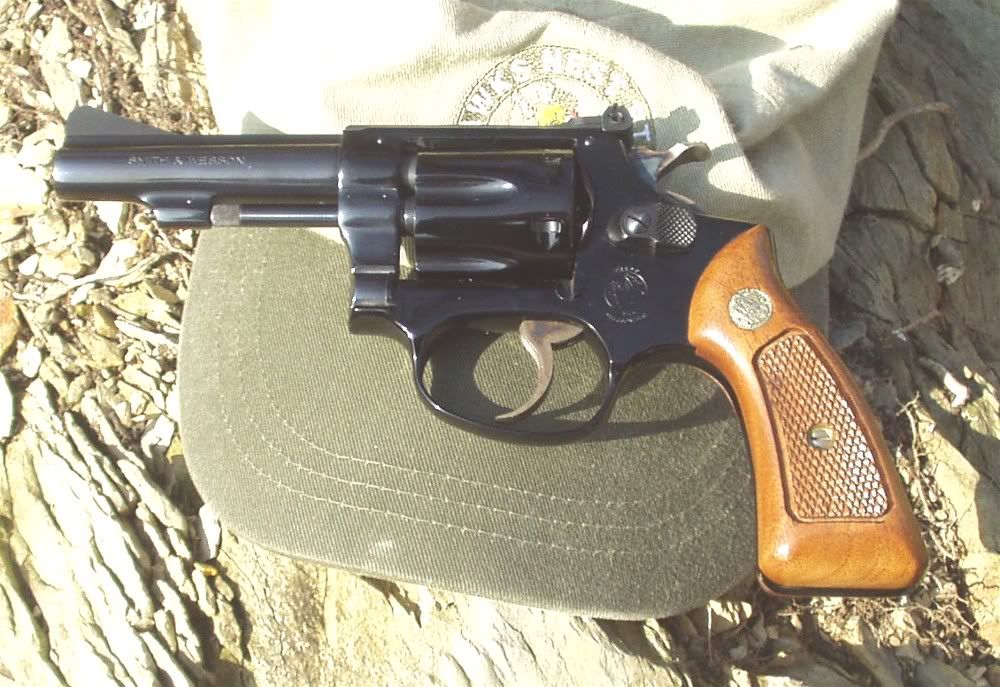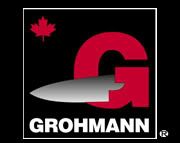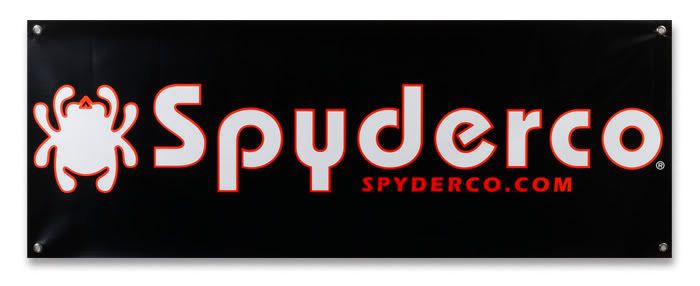 The Smith and Wesson 43 is an airweight version of the 34 "kit gun" with a 3½" barrel. The frame AND cylinder are both of S&W's aluminum alloy. These lightweight guns were made from 1954 to 1974. Most were squarebutt blued/anodized guns but there are examples with 2 and 4 inch barrels, nickled and with roundbutts. I understand there are even a few in .22 WMRF. A wealth of collecting trivia well suited to the obsessive collector!
The Smith and Wesson 43 is an airweight version of the 34 "kit gun" with a 3½" barrel. The frame AND cylinder are both of S&W's aluminum alloy. These lightweight guns were made from 1954 to 1974. Most were squarebutt blued/anodized guns but there are examples with 2 and 4 inch barrels, nickled and with roundbutts. I understand there are even a few in .22 WMRF. A wealth of collecting trivia well suited to the obsessive collector!This gun with SN M70XXX was made in either 1973 or 1974. This gun does not have the red front sight insert. It is of the standard configuration and is immaculate although it has been fired. It fits very well into a late 1980s Bianchi holster made for the 4" M34 or M63 kit guns. I'm pretty pleased with it!
One thing I have read is that some of these guns don't reliably ignite ammo when used in double-action as the force of the blow to the cartridge rim by the firing pin is lessened. I've also read that some think the firing pins were deliberately slightly shortened to avoid inadvertent dryfire peening of the chambers in these rimfire guns. I don't know which or if either story is true but now that I've fired mine with Aguila Colibri ammo I can confirm that it goes bang every time in single-action shooting but not so in double action shooting. Interesting as I don't have this problem with my S&W M34-1. I'm wondering, is it possible that the aluminum cylinder absorbs more firing pin energy than a steel cylinder? Was that the basis for the idea that the blow to the cartridge rim was less in DA? An unreasoned explanation for a mis-understood phenomenon?
What I really need to do is to try different ammo to see if this is true with all ammunition or if it is brand specific. In truth, most shots with this gun will likely be fired single-action and this might never be an issue for me.






















No comments:
Post a Comment